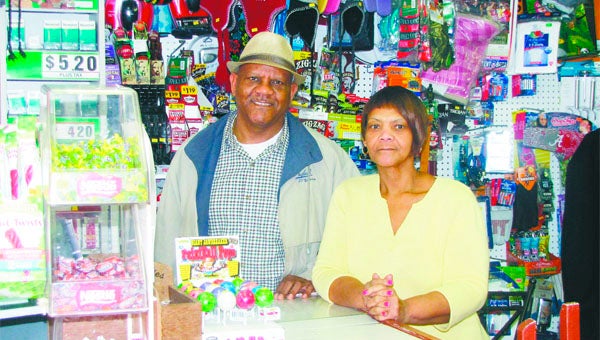Fuel for change
Published 9:35 pm Tuesday, January 15, 2013

McNeil Express owner James McNeil and his sister Edna Robinson looked back at the progress African Americans have made since the civil rights movement as Martin Luther King Jr. Day approaches.
When James McNeil was eight years old, he and his father stopped at a full service gas station in Atmore and the event forever changed his life. It was the 1960s, a time when many black people were refused even the simplest of services, such as gas at a full service station. But from that experience was born an Atmore business that is still thriving today, as well as a spark in the eventual fire that would lead to equal rights for black Americans.
“We must have waited about 30 minutes and they never would wait on us,” McNeil said of that day years ago. “I remember my dad said ‘they don’t want to wait on us. I’m going to open my own station.’”
And that’s exactly what McNeil’s father did in 1968 and his service station was one of the first businesses in Atmore owned by a black man. Today, McNeil still owns and operates the station his father began, McNeil Express, as well as the apartment complex across the street. As Martin Luther King Jr. Day approaches Monday, McNeil said it is remarkable to look back to the days of integration and to see how far the town of Atmore has come.
“I was in the ninth grade in the junior high (the year they integrated schools),” McNeil said. “I was at Escambia County Training School and when we got integrated I came over to the junior high school, where the YMCA is.”
Although integrating schools was one of the key victories of the civil rights movement, McNeil said things did not begin smoothly in the school system.
“That’s when the riots started,” he said. “They said it started over at the senior high (currently Escambia County High School), but there were fights going on in all three schools. People were shoving and throwing stuff. All three schools had the same problem. I just got away and tried not to participate in it.”
McNeil said the chaos of integrating schools was controlled relatively quickly, but added that was not the only change for black people in Atmore.
“I remember when we would go watch a movie at the Strand, there was a little wooden door to the side and it went up to the balcony and looked down and that’s where the blacks sat. Whites were down on the bottom,” he said. “I remember when you would buy a bus ticket in town and then have to go to the back of the bus.”
McNeil was even able to recount a time prior to integration when even the city’s police force was separated by race.
“I remember there was one black police officer,” he said. “His name was J.B. Ratmond. He drove his own car. I remember when he couldn’t arrest white folks. All he could arrest were blacks.”
While admitting the civil rights era was a tough time for African Americans, McNeil said he sees the fruits of that labor, lead by King, all over Atmore.
“I have a 13-year-old granddaughter and I was taking her to a hay ride out in Poarch,” McNeil said. “She wanted to stop and pick up her friend, so we did. She was white. They just don’t think about it anymore, which is the way it should be. It makes the world better.”
McNeil, who is a founding member of the Concerned Citizens of Atmore, the annual organizers of Martin Luther King Jr. Day services, said King’s example during the civil rights movement. was awe inspiring, especially to a young black man in Alabama.
“There was a lot of looking up to him,” McNeil said. “I looked on the news and saw him getting arrested, but it wouldn’t be long before he was right back out there doing it again. Being a kid and seeing things like just inspired me.”
Today, almost 45 years after King’s death at the hands of an assassin, McNeil said the town he calls home is a better place because of his actions, but he also points to his father’s unwillingness to accept racism as one of many examples of African Americans all over the country who made a difference in the fight for equality.
“I’ll never forget being with my dad at that gas station,” McNeil said. “That really inspired me and made me want to keep this business going.”



